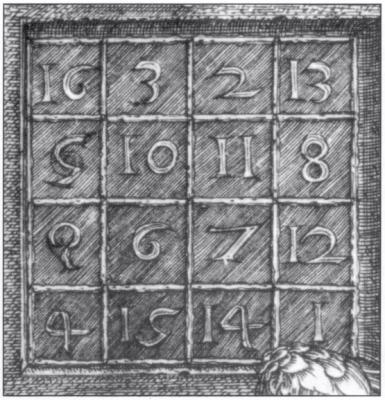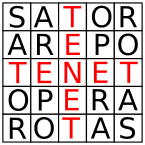Mittwoch, 14. März 2012
Keine RNA Welt
klauslange,14:13h
Eine weitverbreitete und mittlerweile etablierte Hypothese ist eine sogenannte RNA-Welt als evolutionärer Vorgänger der heutigen Protein-Welt mit der DNA. Eine neue Studie zeigt aber, dass die RNA nie unabhängig von den Proteinen komplexe Aufgaben wahrnehmen konnte. Mehr noch, die Frage, wie es zum heitigen komplexen DNA-RNA-Mechanismus kommen konnte, muss als offen betrachtet werden.
sciencedaily.com berichtet hier:
In the new analysis, Caetano-Anollés and graduate student Ajith Harish (now a postdoctoral researcher at Lund University in Sweden) subjected the universal protein and RNA components of the ribosome to rigorous molecular analyses -- mining them for evolutionary information embedded in their structures. (They also analyzed the thermodynamic properties of the ribosomal RNAs.) They used this information to generate timelines of the evolutionary history of the ribosomal RNAs and proteins.
These two, independently generated "family trees" of ribosomal proteins and ribosomal RNAs showed "great congruence" with one another, Caetano-Anollés said. Proteins surrounding the PTC, for example, were as old as the ribosomal RNAs that form that site. In fact, the PTC appeared in evolution just after the two primary subunits that make up the ribosome came together, with RNA bridges forming between them to stabilize the association.
The timelines suggest that the PTC appeared well after other regions of the protein-RNA complex, Caetano-Anollés said. This strongly suggests, first, that proteins were around before ribosomal RNAs were recruited to help build them, and second, that the ribosomal RNAs were engaged in some other task before they picked up the role of aiding in protein synthesis, he said.
"This is the crucial piece of the puzzle," Caetano-Anollés said. "If the evolutionary build-up of ribosomal proteins and RNA and the interactions between them occurred gradually, step-by-step, the origin of the ribosome cannot be the product of an RNA world. Instead, it must be the product of a ribonucleoprotein world, an ancient world that resembles our own. It appears the basic building blocks of the machinery of the cell have always been the same from the beginning of life to the present: evolving and interacting proteins and RNA molecules."
"This is a very engaging and provocative article by one of the most innovative and productive researchers in the field of protein evolution," said University of California at San Diego research professor Russell Doolittle, who was not involved in the study. Doolittle remains puzzled, however, by "the notion that some early proteins were made before the evolution of the ribosome as a protein-manufacturing system." He wondered how -- if proteins were more ancient than the ribosomal machinery that today produces most of them -"the amino acid sequences of those early proteins were 'remembered' and incorporated into the new system."
Caetano-Anollés agreed that this is "a central, foundational question" that must be answered. "It requires understanding the boundaries of emergent biological functions during the very early stages of protein evolution," he said. However, he said, "the proteins that catalyze non-ribosomal protein synthesis -- a complex and apparently universal assembly-line process of the cell that does not involve RNA molecules and can still retain high levels of specificity -- are more ancient than ribosomal proteins. It is therefore likely that the ribosomes were not the first biological machines to synthesize proteins."
Caetano-Anollés also noted that the specificity of the ribosomal system "depends on the supply of amino acids appropriately tagged with RNA for faithful translation of the genetic code. This tagging is solely based on proteins, not RNAs," he said. This suggests, he said, that the RNA molecules began as co-factors that aided in protein synthesis and fine-tuned it, resulting in the elaborate machinery of the ribosome that exists today.
sciencedaily.com berichtet hier:
In the new analysis, Caetano-Anollés and graduate student Ajith Harish (now a postdoctoral researcher at Lund University in Sweden) subjected the universal protein and RNA components of the ribosome to rigorous molecular analyses -- mining them for evolutionary information embedded in their structures. (They also analyzed the thermodynamic properties of the ribosomal RNAs.) They used this information to generate timelines of the evolutionary history of the ribosomal RNAs and proteins.
These two, independently generated "family trees" of ribosomal proteins and ribosomal RNAs showed "great congruence" with one another, Caetano-Anollés said. Proteins surrounding the PTC, for example, were as old as the ribosomal RNAs that form that site. In fact, the PTC appeared in evolution just after the two primary subunits that make up the ribosome came together, with RNA bridges forming between them to stabilize the association.
The timelines suggest that the PTC appeared well after other regions of the protein-RNA complex, Caetano-Anollés said. This strongly suggests, first, that proteins were around before ribosomal RNAs were recruited to help build them, and second, that the ribosomal RNAs were engaged in some other task before they picked up the role of aiding in protein synthesis, he said.
"This is the crucial piece of the puzzle," Caetano-Anollés said. "If the evolutionary build-up of ribosomal proteins and RNA and the interactions between them occurred gradually, step-by-step, the origin of the ribosome cannot be the product of an RNA world. Instead, it must be the product of a ribonucleoprotein world, an ancient world that resembles our own. It appears the basic building blocks of the machinery of the cell have always been the same from the beginning of life to the present: evolving and interacting proteins and RNA molecules."
"This is a very engaging and provocative article by one of the most innovative and productive researchers in the field of protein evolution," said University of California at San Diego research professor Russell Doolittle, who was not involved in the study. Doolittle remains puzzled, however, by "the notion that some early proteins were made before the evolution of the ribosome as a protein-manufacturing system." He wondered how -- if proteins were more ancient than the ribosomal machinery that today produces most of them -"the amino acid sequences of those early proteins were 'remembered' and incorporated into the new system."
Caetano-Anollés agreed that this is "a central, foundational question" that must be answered. "It requires understanding the boundaries of emergent biological functions during the very early stages of protein evolution," he said. However, he said, "the proteins that catalyze non-ribosomal protein synthesis -- a complex and apparently universal assembly-line process of the cell that does not involve RNA molecules and can still retain high levels of specificity -- are more ancient than ribosomal proteins. It is therefore likely that the ribosomes were not the first biological machines to synthesize proteins."
Caetano-Anollés also noted that the specificity of the ribosomal system "depends on the supply of amino acids appropriately tagged with RNA for faithful translation of the genetic code. This tagging is solely based on proteins, not RNAs," he said. This suggests, he said, that the RNA molecules began as co-factors that aided in protein synthesis and fine-tuned it, resulting in the elaborate machinery of the ribosome that exists today.
... comment

